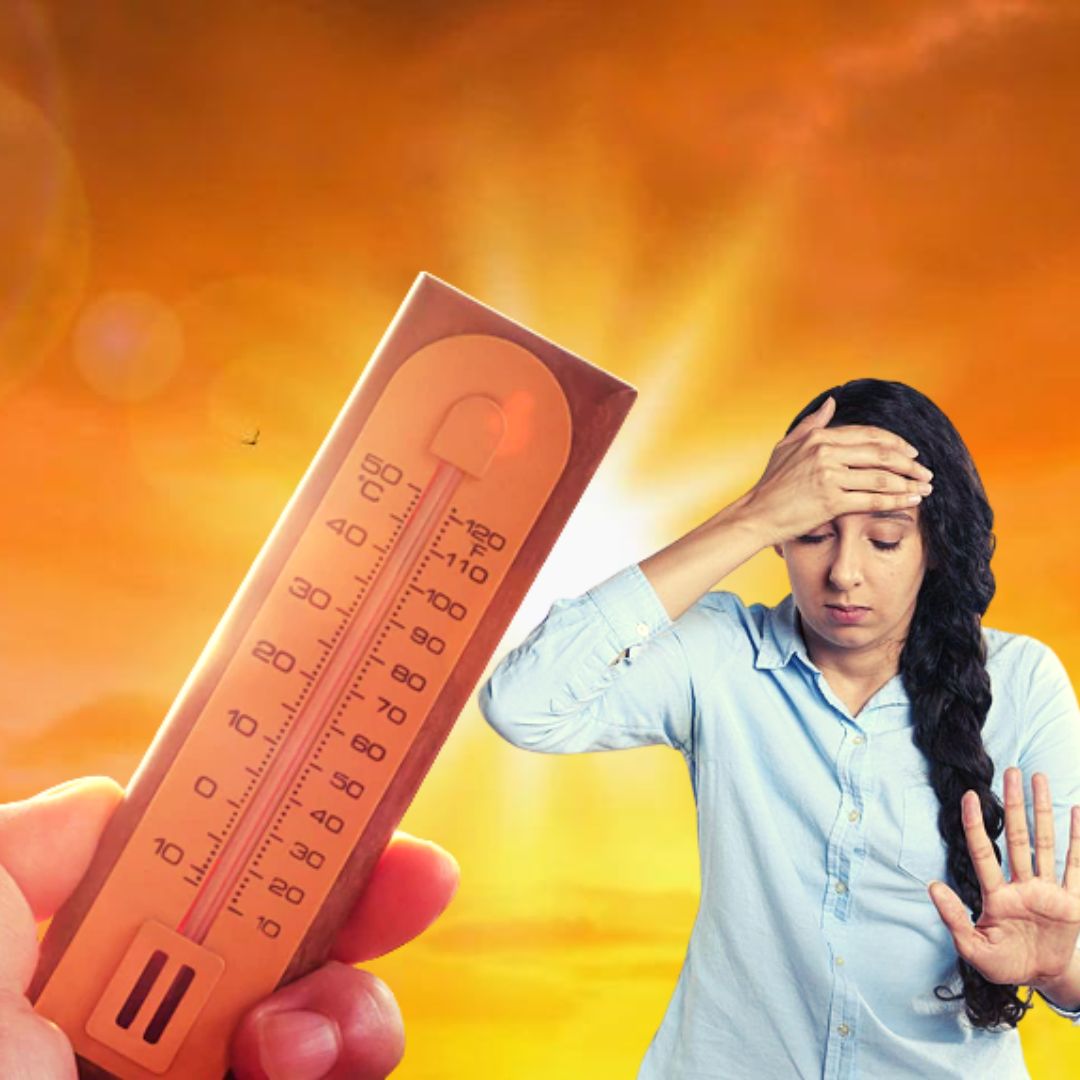Extreme Heat Makes Mental Health Crises Like Depression, Anxiety & Dipolar Disorder More Common- Here's How
Writer: Tashafi Nazir
For most people, journalism sounds hectic and chaotic. For her, it's a passion she has been chasing for years. With an extensive media background, Tashafi believes in putting efforts on presenting a simple incident in the most interesting way.
Others/World, 23 July 2022 10:45 AM GMT
Editor : Snehadri Sarkar |
While he is a massive sports fanatic, his interest also lies in mainstream news and nitpicking trending and less talked about everyday issues.
Creatives : Tashafi Nazir
For most people, journalism sounds hectic and chaotic. For her, it's a passion she has been chasing for years. With an extensive media background, Tashafi believes in putting efforts on presenting a simple incident in the most interesting way.
According to a World Economic Forum report, heatwaves as well as other weather events have been linked to a rise in depressive symptoms in people with depression, and a rise in anxiety symptoms in those with generalised anxiety disorder.
Health-care researchers have warned about the effects of high temperatures on mental health amid a string of heat waves in Europe, the United Kingdom and North America.
The World Economic Forum published a report on high temperatures and mental health on July 14, citing more than 10 studies from countries worldwide. According to a 2020 study, the report highlighted how extreme heat and humidity are linked to heightened symptoms in people with depression, generalised anxiety disorder and bipolar disorder.
"Heatwaves have a severe impact on our physical and mental well-being. Doctors usually dread them, as emergency rooms quickly fill up with patients suffering from dehydration, delirium and fainting," the WEF report said.
Recent studies suggest a nearly 10 per cent rise in hospital emergency room visits on days when temperatures reach or exceed the top five per cent of the average temperature range for a specific location. Rising temperatures can also worsen symptoms in people with mental health issues. Heatwaves and other weather events like floods and fires have been linked to an increase in depressive symptoms in people with depression and a surge in anxiety symptoms in those with a generalised anxiety disorder – a disorder where people feel anxious most of the time.
High Temperature Leads To Suicide Rates
According to the study, there is also a link between daily high temperature and suicide and suicide attempts. For every 1℃ increase in monthly average temperature, mental health-related deaths rise by 2.2 per cent. In addition, spikes in relative humidity result in a higher occurrence of suicide.
"Humidity and temperature, both of which are changing due to human-induced climate change, have been causally linked to a surge in manic episodes in individuals with bipolar disorder. This state of the illness causes significant harm and results in hospitalisation for psychosis and thoughts of suicide," the report stated.
Further problems are posed by the fact that the effects of heat can reduce the effectiveness of essential drugs used to treat psychiatric illnesses. Many medications increase the risk of heat-related death, for example, antipsychotics, which can suppress thirst resulting in an individual becoming dehydrated. Some drugs will work differently depending on the body temperature and how dehydrated the person is, like lithium, a very potent and widely used mood-stabiliser, frequently prescribed for people with bipolar disorder.
According to Human Rights Watch, Governments around the world should act to protect people from the current and foreseeable harms of extreme heat fuelled by climate change.
It said that governments have human rights obligations to help people adapt to the impacts of climate change. This includes an assessment of the foreseeable effect of extreme heat, especially for the most at-risk populations, followed by effective plans to mitigate the expected harm. Governments should also rapidly reduce greenhouse gas emissions and stop subsidising fossil fuels to prevent the most catastrophic climate outcomes and protect the rights of at-risk populations.
Fuzzy Thinking, Aggressive Behaviour
Heat can also impact the mental health and ability to think and reason of individuals without a mental health disorder. Research finds that areas of the brain responsible for framing and solving complex cognitive tasks are impaired by heat stress.
A study of students in Boston shows that those in rooms without air conditioning during a heatwave performed 13 per cent worse than their friends in cognitive tests and had 13 per cent slower reaction time.
"When people do not think clearly due to heat, it is more likely they will become frustrated, and in turn, can lead to aggression," stated the WEF report.
Frustration Leads To Aggression
In addition, there is strong evidence linking extreme heat with a rise in violent crime. Even just a one or two-degree celsius rise in ambient temperatures can lead to a 3-5 per cent increase in assaults. By 2090, it is estimated that climate change could be responsible for up to a five per cent spike in all crime categories, worldwide. The reasons for these increases involve a complex interaction of psychological, biological and social factors. For example, a brain chemical called serotonin, which, among other things, keeps levels of aggression in check, is affected by high temperatures.
Hot days can also aggravate eco-anxiety. In the UK, 60 per cent of youth surveyed said they are apprehensive about climate change. Over 45 per cent of those questioned said feelings about the climate affected their daily lives.
Researchers said there is a lot they don't understand about the complex interplay and feedback loops between climate change and mental health – especially the effects of heat waves. However, they know that people are playing a dangerous game with themselves and the planet.
They said that heatwaves, and their effects on mental health, are important reminders that the best thing people can do to help themselves and future generations is to act on climate change.
Also Read: History Made! India Gets Its First Brain Health Clinic In Bengaluru
 All section
All section















